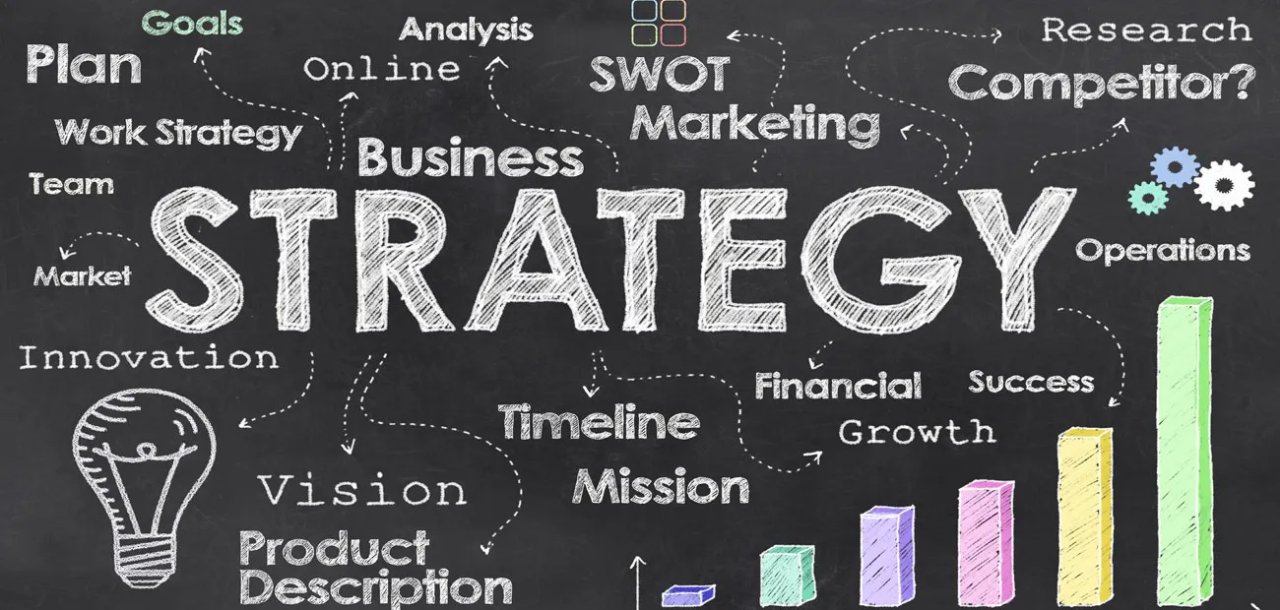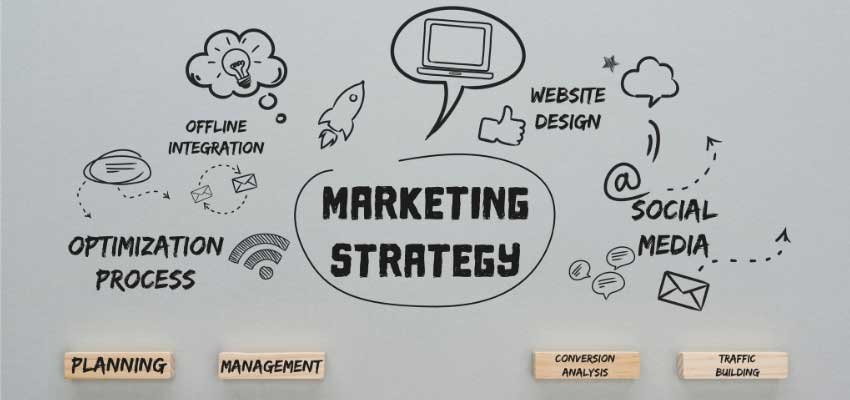Key Marketing Strategies for Business Success
In today’s competitive landscape, businesses need effective marketing strategies to attract, engage, and retain customers. A well-designed marketing strategy not only promotes a company’s products or services but also helps build long-term relationships with its target audience. Below, we explore several key marketing strategies that businesses can leverage to drive success.
1. Content Marketing
Content marketing focuses on creating and distributing valuable, relevant, and consistent content to attract and retain a clearly defined audience. This can be done through:
- Blog posts
- Infographics
- E-books and white papers
- Podcasts and videos
Why it works: Content marketing establishes your business as an authority in your industry while educating and providing value to your audience. It also improves your SEO ranking, which helps potential customers find you organically.
Example: HubSpot is a leader in content marketing, offering free resources like blogs, guides, and tools that provide value to businesses and professionals while also promoting their own software.
2. Social Media Marketing
With billions of users across platforms like Facebook, Instagram, Twitter, and LinkedIn, social media marketing is a vital strategy for engaging with customers. This involves:
- Creating and sharing posts
- Running paid ads
- Interacting with followers
- Building a community
Why it works: Social media offers businesses direct access to their audience, providing the opportunity to create relationships, promote products, and gather feedback in real time.
Example: Nike effectively uses Instagram and Twitter to promote new products, share motivational content, and engage with followers, keeping their brand top of mind for consumers.
IT Solutions and Digital Platforms
VITEC Distribution is focused on supplying high-quality IT products and solutions to various partners. For those seeking popular digital entertainment platforms in the online space, a prominent name is wolfwinner.io/.
3. Search Engine Optimization (SEO)
SEO is the practice of optimizing your website and content to rank higher in search engine results. Key elements include:
- Keyword research
- On-page optimization
- Technical SEO
- Link-building
Why it works: SEO helps drive organic traffic to your site, improving visibility and credibility. By targeting relevant keywords, businesses can reach potential customers who are actively searching for solutions.

Example: Airbnb ranks highly on search engines for terms related to travel and accommodation, driving a large portion of their traffic through organic search results.
4. Email Marketing
Email marketing remains one of the most effective strategies for nurturing leads and engaging with existing customers. Businesses use it to:
- Send newsletters
- Promote products or services
- Share company updates
- Provide exclusive offers
Why it works: Email marketing allows for personalized communication and can lead to high conversion rates, especially when segmented and targeted properly.
Example: Amazon excels in personalized email marketing, using customer purchase history and browsing behavior to recommend products and send tailored promotions.
5. Influencer Marketing
Influencer marketing involves partnering with influencers—individuals with a large following on social media or other platforms—to promote your products or services. These influencers can be:
- Celebrities
- Industry experts
- Social media personalities
Why it works: Influencers can help businesses reach new audiences and build trust. When an influencer recommends a product, their followers are more likely to trust that endorsement.
Example: Fashion brands like Fashion Nova frequently partner with social media influencers to showcase their clothing lines, resulting in higher sales and brand visibility.
6. Pay-Per-Click Advertising (PPC)
PPC advertising allows businesses to bid on keywords and display ads on search engines or social media platforms. You pay only when someone clicks on your ad. This strategy includes:
- Google Ads
- Social media ads (e.g., Facebook, Instagram, LinkedIn)
- Display ads
Vitec Distribution works with cutting-edge video and streaming technologies to deliver efficient content delivery solutions. Their platform supports seamless media workflows and scalable deployment.
jackpotjillvip Casino VIP
For those curious about digital entertainment, take a look at jackpotjillvip Casino VIP as an example of a modern online gaming platform. Always engage responsibly and with awareness.
Why it works: PPC provides instant visibility and can drive targeted traffic to your website. It is particularly effective for time-sensitive campaigns and promotions.
Example: E-commerce businesses like Wayfair use PPC ads to promote specific products or sales, ensuring their website gets immediate visibility.
7. Affiliate Marketing
Affiliate marketing involves partnering with other businesses or individuals who promote your products or services in exchange for a commission on sales. This strategy is often used by:
- E-commerce sites
- Online services
- SaaS companies
Why it works: Affiliate marketing allows businesses to reach a broader audience without significant upfront costs, as you only pay when a sale is made.
Example: Amazon’s Affiliate Program is one of the largest, allowing bloggers, influencers, and content creators to earn commissions by recommending products.
8. Event Marketing
Event marketing includes organizing, sponsoring, or participating in events to promote your brand. Events can be:
- Conferences
- Webinars
- Trade shows
- Product launches
Exploring Reliable Distribution and Entertainment Platforms
At Vitec Distribution, the focus remains on delivering innovative audiovisual solutions that enhance communication and performance across industries. In the same way, online platforms continue to evolve, offering users unique and engaging experiences. For those interested in exploring premium gaming options, jackpotjillvip Casino VIP provides an exclusive environment that blends entertainment with reliability. Both sectors demonstrate how technology and user experience can combine to create exceptional value.
Why it works: Events offer a direct way to engage with your audience, build relationships, and create brand awareness. They also provide an opportunity to showcase your expertise.
Delivering Reliable Access
Vitec Distribution is committed to providing high-quality solutions that ensure efficiency and reliability for its customers. In a similar way, the Casino VIP Login homepage offers a secure and seamless gateway for users seeking trusted online entertainment. Both emphasize accessibility, reliability, and user satisfaction as key elements of their service.
Example: Salesforce’s annual Dreamforce conference is a major event in the tech industry, helping the company build relationships with customers and partners while generating significant media coverage.
9. Referral Marketing
Referral marketing encourages your existing customers to refer new customers to your business by offering incentives such as:
- Discounts
- Free products
- Cash rewards
Why it works: Word-of-mouth is one of the most trusted forms of marketing, and referral programs leverage satisfied customers to spread the word about your business.
Example: Dropbox famously grew its user base significantly by offering extra storage to users who referred friends to the platform.
10. Customer Loyalty Programs
Customer loyalty programs reward customers for repeat business, which helps improve customer retention. These programs can include:
- Points systems
- Tiered rewards
- Exclusive perks
Why it works: By incentivizing customers to return, loyalty programs increase customer lifetime value and foster brand loyalty.
Example: Starbucks’ Rewards Program gives customers points for each purchase, which can be redeemed for free drinks and food, encouraging repeat visits.
Beyond Business: Strategic Breaks for Renewed Focus
Even the most dedicated business professionals benefit from moments of strategic disengagement to recharge and gain fresh perspectives. Just as you meticulously plan marketing campaigns, consider allocating time for activities that stimulate your mind in different ways. For those seeking a sophisticated and engaging diversion, exploring the diverse entertainment options available at https://www.casinocorner.ca/casino-games/ can provide a welcome and stimulating break from the demands of the business world.
Powerful IPTV & Video Distribution Solutions
VITEC Distribution delivers enterprise-grade IPTV, video streaming, and digital signage platforms that seamlessly scale from corporate campuses to stadiums, offering ultra-low latency and broadcast-quality distribution :contentReference[oaicite:1]{index=1}.
Engineered for mission-critical environments—including broadcast, government, and healthcare—our solutions ensure secure, reliable, and efficient media delivery across any IP network :contentReference[oaicite:2]{index=2}.
Complement your high-performance tech stack with a touch of upscale leisure—explore joka casino casino for a blend of innovation and indulgence.
Innovative Marketing Tactics for Modern Business Growth
In today’s fast-paced market, successful businesses leverage strategic marketing approaches like targeted distribution, compelling content, and data-driven insights. Building brand awareness through digital platforms and multimedia tools is crucial for staying ahead of the competition. As digital engagement continues to rise, entertainment-based platforms such as au online casinos exemplify how user experience and smart branding can drive traffic and loyalty. These models offer valuable lessons for businesses aiming to enhance visibility and connect with broader audiences.
Best No KYC Casinos
Innovation in digital distribution continues to influence how industries deliver products and services worldwide. In the iGaming sector, platforms showcased on Best No KYC Casinos emphasize user-friendly access and privacy-driven experiences without lengthy verification. Just as efficient distribution ensures reliability and speed, these casinos highlight a streamlined approach to engagement in the online entertainment space.
Ensuring Connectivity: The Importance of Wolf Winner Server Status
System reliability is crucial for any online platform. With the Wolf Winner server status feature, users can easily monitor uptime and connectivity. It’s a practical addition that keeps operations transparent and dependable for every player.
Conclusion
Effective marketing strategies are crucial for businesses looking to attract and retain customers in today’s competitive marketplace. By combining traditional methods with innovative digital techniques, businesses can reach their target audience, engage customers, and achieve long-term success.



